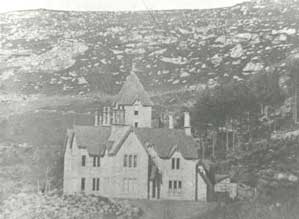I was playing the fool on Twitter the other day.

(This reminds me to note that Alexis Hall’s Shadows & Dreams, the second Kate Kane book, is out 15 June. The first, Iron & Velvet, was one of my favourite reads of last year, and if you like noir, urban fantasy, hardboiled lesbian detectives and/or laugh-out-loud funny writing, snap these up right now. But I digress.)
Captain Exposition is a menace. His pernicious influence is particularly apparent in historical and fantasy writing, where Terry Pratchett dubbed it ‘As you know, your father, the king…’ In this form, characters sit down and explain things to one another purely in order to inform the audience.
As you know, General, you led the invasion force that toppled our neighbouring country of F’l’zz, bringing the F’l’zz’rahi people, for such you know they call themselves, under our rule for the first time. You lost an eye in that conflict, to the sword of the notorious rebel known as the Black Persimmon.
You can just imagine the General muttering, ‘I know. He stabbed me in the eye.’
Exposition is vital to a book, of course. It’s how you convey backstory, setting and systems. What happened to the hero, which countries are at war, how the magic system or the terms of the grandfather’s will or the secret service division operates. The question is, how to convey it in a non-glaring fashion that doesn’t destroy characterisation or bring the plot to a screeching halt.
Exposition in narrative
You can, of course, plonk it on the page with all the bravura of a farmer tipping a pile of manure off a spade.
Rachel and Kirsty had a secret. Unknown to their parents, the girls were secret friends with the fairies and often helped them when they were in trouble.
(Daisy Meadows, every goddamn Rainbow Magic book ever)
My children, aged 5 and 6, are capable of spotting this, and will chorus a scathing ‘Infodump!’ at any adult foolish enough not to skip this bit when reading aloud. (Then again, when my daughter gets asked to ‘make a book’ for school, she always puts an ISBN and barcode on the back and writes a blurb, eg ‘A brilliant story for all little children.’ Editors shouldn’t breed.)
If you have the right narrative voice, of course, you can tell the reader anything you want.
But first a word must be said about Peter. He was the man that taught me all I ever knew of veld-craft, and a good deal about human nature besides. He was out of the Old Colony – Burgersdorp, I think – but he had come to the Transvaal when the Lydenburg goldfields started. He was prospector, transport-rider, and hunter in turns, but principally hunter. In those early days he was none too good a citizen. He was in Swaziland with Bob Macnab, and you know what that means. Then he took to working off bogus gold propositions on Kimberley and Johannesburg magnates, and what he didn’t know about salting a mine wasn’t knowledge. […]
He was a man of about five foot ten, very thin and active, and as strong as a buffalo. He had pale blue eyes, a face as gentle as a girl’s, and a soft sleepy voice. From his present appearance it looked as if he had been living hard lately. His clothes were of the cut you might expect to get at Lobito Bay, he was as lean as a rake, deeply browned with the sun, and there was a lot of grey in his beard. He was fifty-six years old, and used to be taken for forty. Now he looked about his age.
(John Buchan, Greenmantle)
Shameless exposition, sure. But the spirit of place rolls off it. The reader is flatteringly included – I have no idea what Bob Macnab did in Swaziland, but I’m pretty sure it was dangerous and maybe illegal, and I like the narrator’s confidence that I’m part of his in-group even if I’m not. The exposition doesn’t just tell us about Peter, but about the narrator’s past and character, and about the world we’re in, and the kind of story this is.
Exposition in dialogue
Exposition can be conveyed through dialogue, with one character explaining things to another, but you need to beware Captain Exposition here most of all. The above speech about the Black Persimmon would establish the speaker in the reader’s head as a tedious cypher, and the General as some kind of idiot with short-term memory loss (‘Who was it stabbed me in the eye again? Oooh, his name’s on the tip of my tongue…’). If you find yourself typing ‘As you know’ or, even worse, having the victim of the exposition exclaim, ‘I know all this!’ then junk the conversation and do it again.
Characters should say things for a reason that isn’t ‘the reader needs to know’. In Think of England I have a crucial bit of exposition around the terrib le thing that happened to the hero and his comrades in the war, which needs to be spelled out early on. I decided to have the hero insist on explaining it at a dinner party, to some social awkwardness, because he’s trying to get a reaction out of the other guests. It clues in the reader at the same time, of course, but as far as the character‘s concerned, he has every reason to say it.
le thing that happened to the hero and his comrades in the war, which needs to be spelled out early on. I decided to have the hero insist on explaining it at a dinner party, to some social awkwardness, because he’s trying to get a reaction out of the other guests. It clues in the reader at the same time, of course, but as far as the character‘s concerned, he has every reason to say it.
It can work to have a rookie character, to whom everything can legitimately be explained (the Will Smith role in Men in Black), but apply some sense. I have read many a scene where the new recruit arrives on his first day at the paramilitary antiterrorist organization and is walked through their purpose and mission, and I sit there thinking, ‘Did nobody explain this to him before he signed up? Your recruitment process sucks.’ (Once again, Men in Black rocks this and makes it work.)
Make sure the conversation is worth having in itself, not just for exposition. If it helps us get to know the characters and shows their reactions and thoughts, it’ll feel much more like an interaction that humans might have.
You can use character thoughts for the same expository effect as dialogue, but again, fear Captain Exposition. ‘He reminded himself about the history of the Black Persimmon’ should set off the Infodump Klaxon just as much as ‘As you know’ in dialogue.
Also, beware the pluperfect in character thoughts.
The General had been tasked with tracking down the Black Persimmon, but when he had arrived in Fl’zz he had had second thoughts.
Too much makes for a painful reading experience.
Exposition in flashback
At least you can avoid pluperfects, and show action. But flashbacks must be controlled. Spread them out, make them clear so the reader doesn’t get temporally unhitched, and make them work for their place. They shouldn’t just be there to inform the reader, but to build character and increase anticipation. They absolutely cannot be allowed to stop forward momentum in the overall story – they should inform and drive the main narrative, should hold information that the reader is desperate to learn.
My latest MS, Jackdaw, has a huge amount of backstory (it starts with an established relationship that has fallen apart, and the flashbacks give the story of the relationship up till the collapse). I tell it with flashbacks throughout the first half for three purposes:
- Avoids infodumping it all in one go.
- Tantalizes the reader: we know from the start that a terrible thing happened but you have to wait till half way through to find out exactly what it was.
- Varies the tone. The main story begins very dark and angry, the flashbacks are at first to a wonderful happy time, which lifts the angsty mood and shows us different aspects of the MCs, as well as supplying necessary information. The flashbacks bring us up to where the main narrative started, and right as the two strands converge, we reach a turning point. Telling the whole story in narrative order would make the turning point feel less climactic. So the exposition supports the structure of the book instead of feeling tacked-in. (I hope.)
Incluing
Your best way of handling exposition is what fantasy and science fiction author Jo Walton calls ‘incluing’ (clueing in the reader). This is “the process of scattering information seamlessly through the text, as opposed to stopping the story to impart the information.” Know your world and systems and setting. Allow your characters’ backstories to inform and bubble through their current reactions. Show it all in action.Don’t tell me that F’l’zz is a slave-based economy: show me slaves as a casual accepted part of the background. Don’t tell me the Black Persimmon stabbed the General in the eye: have a F’l’zz’rahi prisoner refer tauntingly to it, and show us the General’s reaction of quivering with remembered fear, cutting off the prisoner’s head in a snit, or reflecting that the Black Persimmon was kind of hot apart from the eye thing.
Let information trickle out in dialogue and thought and narrative and description, as part of character and events. Put it there for the reader to pick up on, let it soak in as you go, and have confidence in your story. You don’t have to tell everything at once in a big rush. Some things you might not have to openly ‘tell’ at all.
How do you like to see exposition handled? Do you hate flashbacks? Got any good or bad examples? And will Captain Exposition defeat his arch-enemy Doctor Metatext? Tune in next week!
KJ Charles is off to the UK GLBT Meet for authors and readers 6-8 June so probably won’t be around for a bit. Think of England is out 1 July.





 le thing that happened to the hero and his comrades in the war, which needs to be spelled out early on. I decided to have the hero insist on explaining it at a dinner party, to some social awkwardness, because he’s trying to get a reaction out of the other guests. It clues in the reader at the same time, of course, but as far as the character‘s concerned, he has every reason to say it.
le thing that happened to the hero and his comrades in the war, which needs to be spelled out early on. I decided to have the hero insist on explaining it at a dinner party, to some social awkwardness, because he’s trying to get a reaction out of the other guests. It clues in the reader at the same time, of course, but as far as the character‘s concerned, he has every reason to say it.